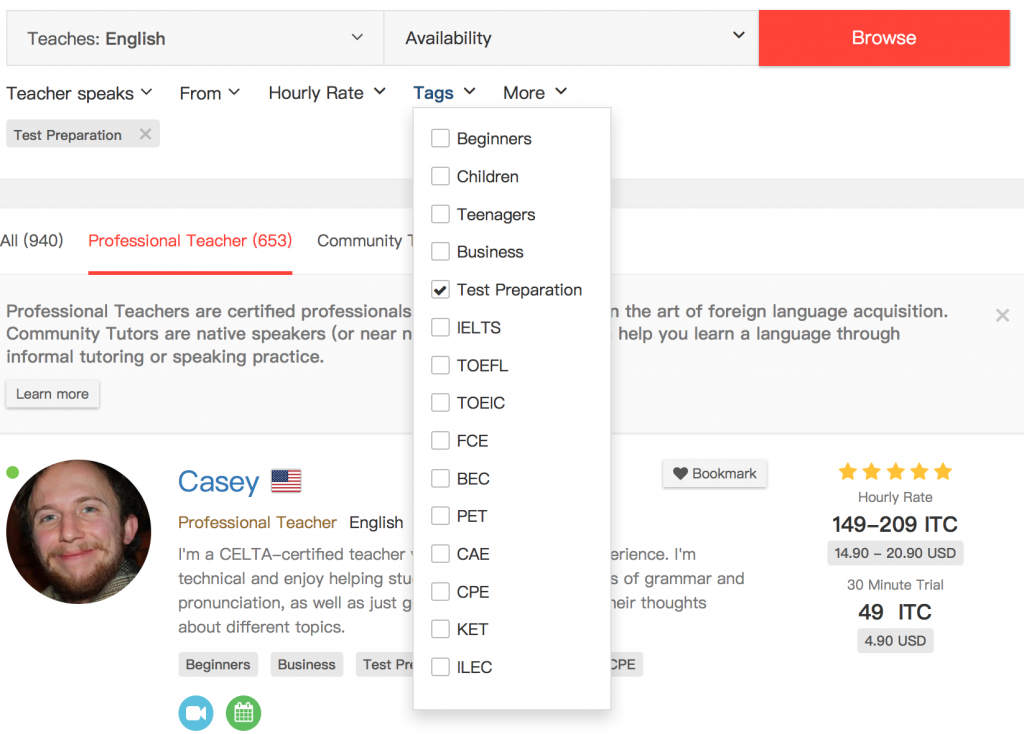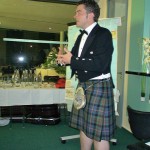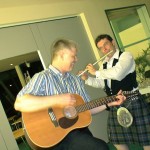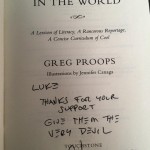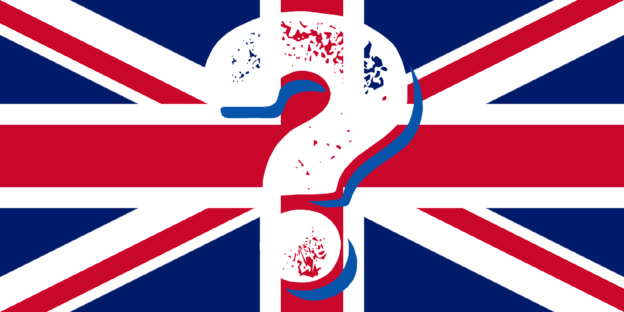An episode analysing more British comedy, this time focusing on a couple of sketches from Limmy’s Show, an award-winning TV comedy produced by BBC Scotland. See below for transcriptions, notes and videos.
[DOWNLOAD]
Introduction
I was vaguely planning to go through a sort of history of British comedy in chronological order, over a series of episodes, but I just feel like doing an episode today about a series called Limmy’s Show because I’ve been enjoying it recently.
In this episode you’ll get
- Listening (obviously) but this one’s going to be a little tricky because you’ll be listening to a couple of sketches that might be hard to understand for various reasons.
- Culture. Since this is comedy, there’s a lot of unspoken meaning which you might not notice. Humour is well-known for being one of the most difficult things to pick up on in another language, which is precisely why it’s a good idea for me to go through some comedy with you on the podcast. Of course, you might not get it. You might not find it funny. That’s fine. What I find enjoyable might leave you completely cold. That could be a question of taste, but it could be a question of cultural context. In fact, in my experience of being a teacher, I’ve noticed many cases of my students just not getting comedy when it’s shown to them. Even stuff that’s considered by the majority of people to be funny, just doesn’t work with learners of English. It’s not until you get to a proficient level of English that you start to notice the unspoken humour or subtlety of a piece of comedy in English. This is because it requires really advanced English skills to notice the nuances that make something amusing, but also because of the difference in mindset or cultural context. You simply might not find it funny just because of cultural conventions. This is why some people disparagingly refer to “British comedy” as being weird, unfunny, very surreal or conceptual. It’s not really that intellectual, it’s just subtle and I think we have a broad scope for comedy. Anyway, I’m not going to get bogged down in trying to explain British comedy, it’s better to just show it to you and try to help you understand it as best I can. But the point I was trying to make is that I want to try and close the gap between what I understand and enjoy about a comedy sketch, and what you might understand and enjoy about it. So, hopefully I can bridge a cultural gap as well as a linguistic gap by doing this sort of episode.
- Vocabulary – there’s is some good, meaty vocab in the sketches we’re going to hear, from several different registers. You’ll hear some slightly formal spoken English from an executive level business man talking to the police, and some informal English with slang, spoken in a dialect. There will be vocabulary.
- Accent – the sketches we’re going to study are all set in the Glasgow area of Scotland, so you’ll be hearing some English spoken with Glasgow accents – some quite mild and some really strong.
- Amusement. Who knows, as well as all this English practice, you might also simply enjoy the sketches! I hope so.
What is Limmy’s Show?
Limmy’s Show is a sketch show which was broadcast on the BBC in Scotland a few years ago. A lot of the sketches from the show are on YouTube and in fact that’s where I’ve seen all of it.
Limmy’s Show is written and directed by a guy from Glasgow called Brian Limond. I think he got his show after getting quite well known from doing a podcast and some YouTube videos. He also did performances at the Edinburgh Festival. Basically, he got a sort of cult following on the internet and that led to him getting his own TV sketch show on BBC Scotland. The thing is, his show was never broadcast in England, only on TV in Scotland, which is a pity for the English because it’s a really good show.
Buy Limmy’s Show on DVD here
I guess that the Scottishness is a large part of the appeal of the show. I think it has a lot to do with it. All the characters in the sketches are Scottish and speak mostly with Glaswegian accents, and the scenes all take place in and around Glasgow.
The sketches feature different characters, mostly played by Limmy. He plays a range of characters from different social backgrounds.
The sketches are often quite surreal, bizarre or dark. Often they feature characters with weird behaviour, or Limmy talking directly to the camera about an aspect of life that he’s noticed. Some sketches just make me think, or just confuse me a bit – but in a good way.
Sometimes they’re laugh out loud funny, sometimes just amusing and sometimes just a bit curious in the way they present quite odd observations about everyday life. Some sketches are a bit disturbing, and others are even a bit sad. All in all, Limmy’s Show is original and refreshingly unconventional, as well as being funny.
It’s worth mentioning again the significance of the accents you’ll hear in Limmy’s Show. As I said, they’re all Scottish, specifically Glaswegian. Some of the characters speak with very heavy Glaswegian accents, and I think that’s part of the appeal to be honest. You don’t often hear those accents on TV. Sometimes they’re difficult to understand if you don’t come from there. Even people from the UK, like people from London struggle to understand the show sometimes, especially when certain characters are talking. There are loads of comments on YouTube from foreigners around the world, including native English speakers in America, saying that they can’t understand anything. Some people on YouTube request transcriptions because they can’t understand the sketches and you can see that other people have written out full transcriptions to the sketches in the comment section on YouTube, and there are loads of other comments from people saying “Oh, thanks so much, I never could have understood this without the transcript!”
So, you get the idea that this is going to be some proper Glaswegian English that you’re going to hear.
For me, that’s one of the reasons I like it so much. I love the accent. It’s awesome. I love hearing the particularities of the way these characters pronounce words and phrase their sentences. In a way it becomes more expressive and characterful, to the extent that the accent and speech pattern is a large part of what makes the sketches so fascinating and enjoyable.
So, let’s enjoy listening to Glaswegian English here.
I’ve got a few sketches I want to deal with, from a couple of characters. I’d like to go through loads of these sketches but I can’t do them all. So, I’ve picked out just a couple of ones that I like and that feature slightly different accents and characters, showing a bit of diversity in the way they speak.
Mr Mulvaney
We’ll start with a sketch featuring a character called Mr Mulvaney, who is an executive level business man from Glasgow.
Here’s how we’re going to do it.
- I’ll just play the sketch to you first without a lot of explanation.
- Simply listen and try to follow what’s going on. If you don’t find it funny, then no bother.
- Just try to work out what’s going on. I’ll give you a little bit of detail at the start.
- Afterwards I’ll explain what happened and talk about why I think it’s funny.
- Then I’ll go through it in more detail, pausing after each bit, explaining vocabulary, accent differences and repeating what he says.
- You can find the videos on my site if you want to watch them again.
- So that’s the process.
Mr Mulvaney – Creme Egg
The scene
Mr Mulvaney is sitting in his modern looking office. He’s the director of the company. It looks very corporate. He’s in a suit and has grey hair. The company logo shows that this is the Mulvaney Group – it must be a large corporation. Mulvaney looks serious. His office building is open plan, with glass partitions between each section, so Mulvaney is alone in his room but he can see outside into the rest of the floor through the glass walls.
He calls his secretary to order a taxi for later. It’s all businesslike and serious. Then he sees a couple of police in uniform enter the building and talk to someone on reception. At this point, Mr Mulvaney panics!
https://www.youtube.com/watch?v=5lwno2IRStc
A summary of the whole sketch
An executive business man overreacts when he sees the police in his office building and assumes they have come to question him about a crime he has committed. It looks like he’s committed a very serious crime, like a murder, and he frantically tries to work out his story by having an imaginary conversation with the police. On his own he practises telling his story as convincingly as possible, even adding authentic sounding questions from the police. It turns out that he hasn’t done anything very serious. He’s just stolen a chocolate bar from a shop, but he’s acting as if it’s a capital offense. In the end we realise that the police aren’t even looking for him and we don’t really know why he’s doing the things he’s doing. He could in fact be suffering from obsessive compulsive disorder.
What I find funny about it this sketch
- The fact that he’s a high-powered business man who is involved in petty theft is sort of funny because of the contrast between his high status and the low status nature of the crime.
- There’s a contrast between the serious way he is acting and the pettiness of the crimes he’s committed.
- Comedy sometimes comes from the reveal of something previously hidden. These scenes reveal something about his personality and what he’s done – he’s the managing director of the company, a very serious role, but his life is on the edge of spinning out of control, like in some kind of thriller.
- The performance. Limmy’s performance is really funny. He switches between different attitudes quickly: calm controlled businesslike manner, the panic and fear of being caught by the police, him getting a grip on himself, playing the part of the police officer very convincingly, him acting all indignant and shocked when the police suggest that he might have committed the crime, protesting his innocence, the relief of getting away with it, the determination to stop this kind of crazy behaviour and make sure it never happens again.
- Playing with TV conventions. This is the sort of thing we have seen many times in TV shows, books and films. There are loads of thrillers in which someone in a high status position has committed a crime and when the police come to ask questions they act cooperative and yet completely innocent, while silently panicking on the inside. Every other murder mystery has a character like that in it. This time it’s played for laughs because the crime is not serious at all – it’s just a stolen chocolate bar or something.
Mr Mulvaney – In The Car
https://www.youtube.com/watch?v=uxUJVCYP11o
Mr Mulvaney – Fire Alarm
https://www.youtube.com/watch?v=hKo6sw_NH8w
Part 2 coming soon…
With analysis of a completely different sketch by Limmy.
Other episodes about British comedy from the archive
- 156. British Comedy: Ali G
- 172. British Comedy: Peter Cook & Dudley Moore
- 195. British Comedy: Monty Python’s Flying Circus
- 202. British Comedy: Monty Python & The Holy Grail
- 313. British Comedy: Tim Vine
- 316. British Comedy: Tim Vine (Part 2)
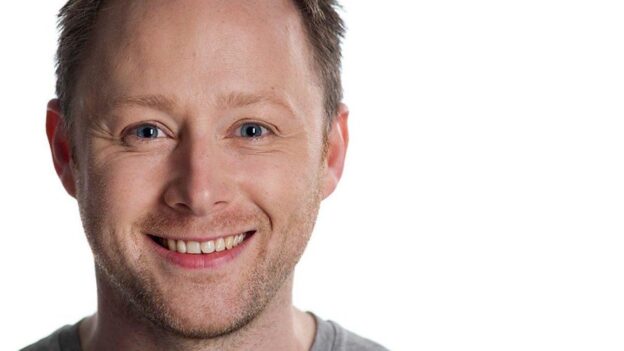
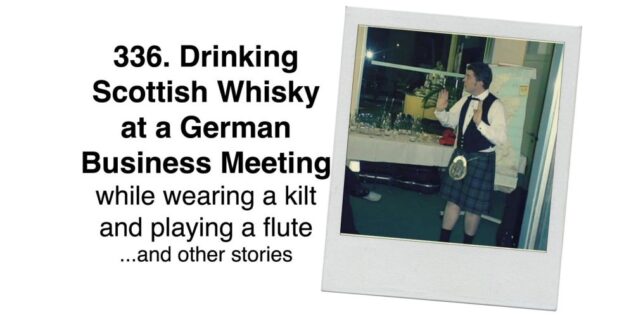
 italki
italki